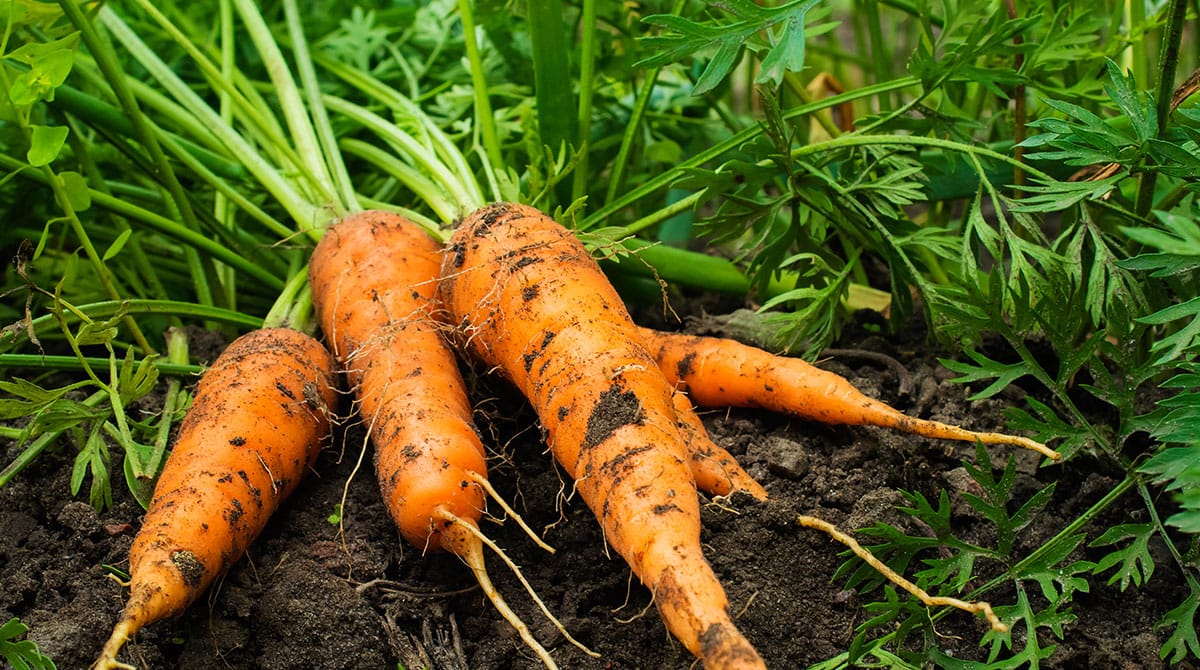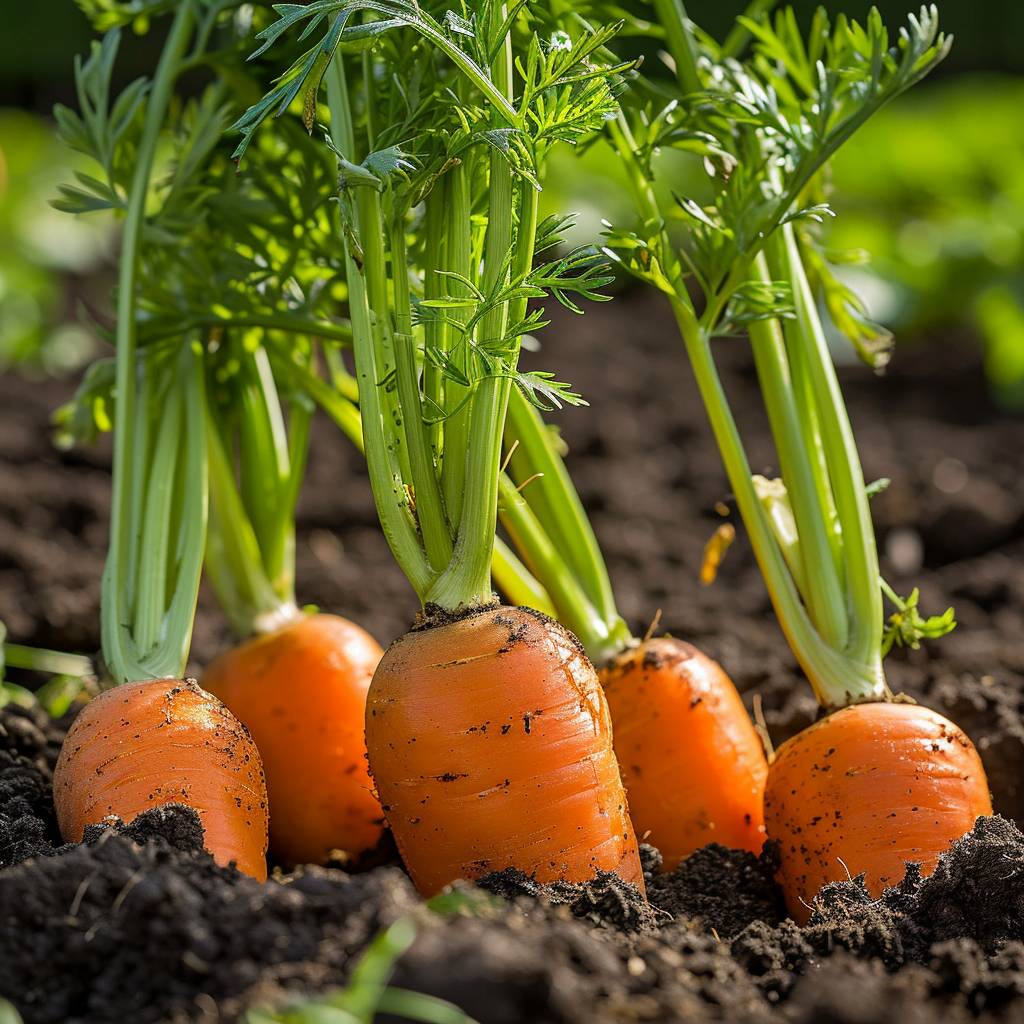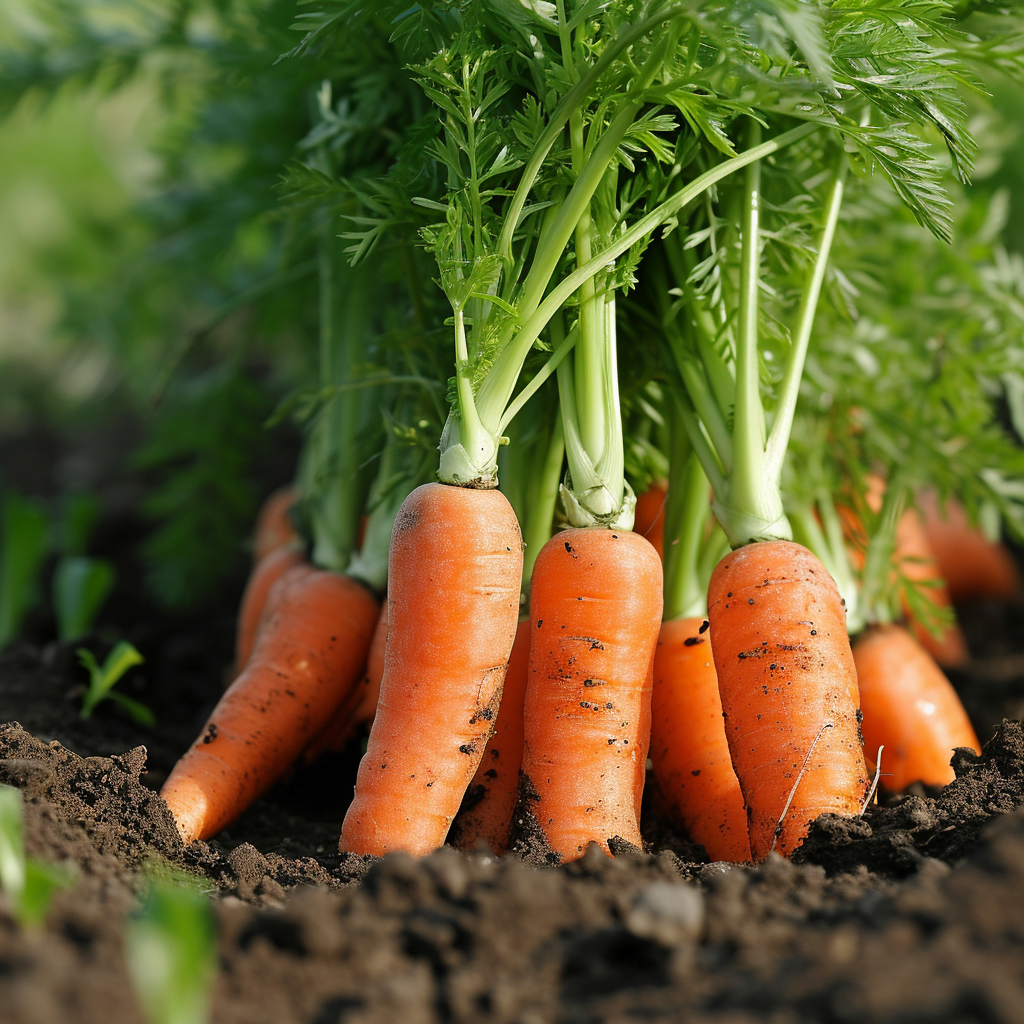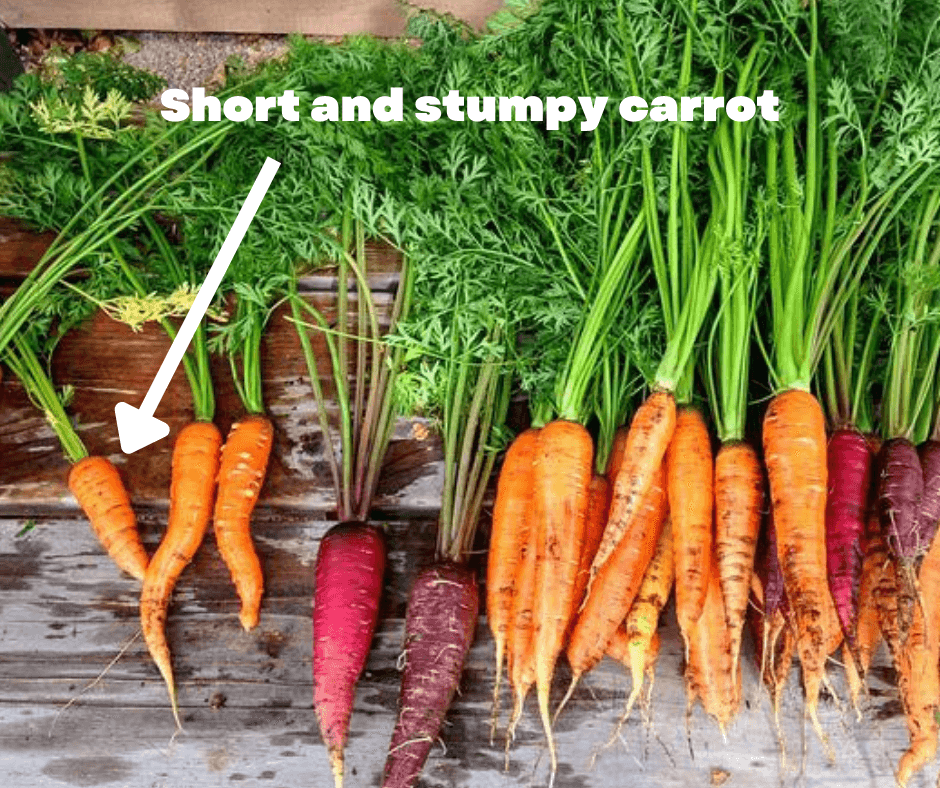So you’ve been eagerly crunching into your fresh carrots, expecting a satisfyingly sweet and earthy flavor, but instead, you’re met with an unexpected bitterness. It’s enough to make you wonder, “Why do my carrots taste bitter?” Well, fear not, for this article will unravel the mystery behind this unfortunate culinary experience and shed light on the various factors that may contribute to your less-than-ideal carrot taste. Whether it’s the variety of carrots you’ve chosen, the way they were grown, or even your own personal taste bud sensitivity, we’ll explore the reasons behind your bitter carrot dilemma and offer some helpful solutions to enhance your future carrot-consuming experiences.
Causes of Bitter Taste in Carrots
Carrots are delicious and nutritious root vegetables that are typically enjoyed for their sweet flavor. However, there may be instances where you bite into a carrot and find it unexpectedly bitter. This can be quite off-putting and leave you wondering why your carrots taste bitter. In this article, we will explore the various factors that can contribute to the bitter taste in carrots. By understanding these causes, you will be better equipped to prevent or address this issue and ensure that your carrots always taste delightful.
Environmental Factors
The environment in which carrots are grown can have a significant impact on their taste. Here are some key environmental factors that may contribute to the bitter taste in carrots.
Soil Composition
The composition of the soil can greatly influence the flavor of carrots. Carrots thrive in well-draining, loamy soil that is rich in organic matter. However, if the soil is too heavy and compacted, it can lead to bitter-tasting carrots. This is because compacted soil can prevent the carrots from growing straight and uniform, causing them to develop a bitter taste.
Climate and Weather Conditions
Another environmental factor that can affect carrot taste is the climate and weather conditions in which they are grown. Carrots prefer cool temperatures, ideally between 60 to 70 degrees Fahrenheit. When exposed to high temperatures, especially during the growing season, carrots may become stressed and develop a bitter taste. Similarly, excessively cold weather can also lead to bitterness in carrots.
Watering Practices
Watering is a crucial aspect of carrot cultivation, and improper watering practices can contribute to bitterness. Overwatering carrots can lead to the leaching of nutrients from the soil, causing the carrots to become tasteless or bitter. On the other hand, under-watering can also impact flavor by causing the carrots to become woody and bitter. Striking the right balance and providing consistent moisture is essential to ensure sweet-tasting carrots.
Carrot Variety
Not all carrots are created equal when it comes to flavor. The variety of carrot you choose to grow or purchase can play a significant role in determining its taste. Here are some carrot varieties that may exhibit a bitter taste.
Wild Carrots or Queen Anne’s Lace
Wild carrots, also known as Queen Anne’s Lace, are biennial plants that grow in the wild. While they resemble cultivated carrots, their taste can be quite different and often bitter. It is important to distinguish between wild carrots and cultivated carrots to avoid any unpleasant surprises when it comes to taste.
Bolting Carrots
Carrots that have bolted, or prematurely gone to seed, can develop a bitter taste. Bolting typically occurs when carrots are exposed to high temperatures or experience fluctuations in moisture levels. When carrots bolt, their energy is diverted towards flowering and reproduction rather than developing a sweet flavor, resulting in bitterness.
Overmature Carrots
Carrots that are left in the ground for too long and become overmature can also develop a bitter taste. Over time, the natural sugars in the carrots convert into starch, leading to a less sweet and potentially bitter flavor. It is important to harvest carrots at the right stage of maturity to ensure optimal taste.
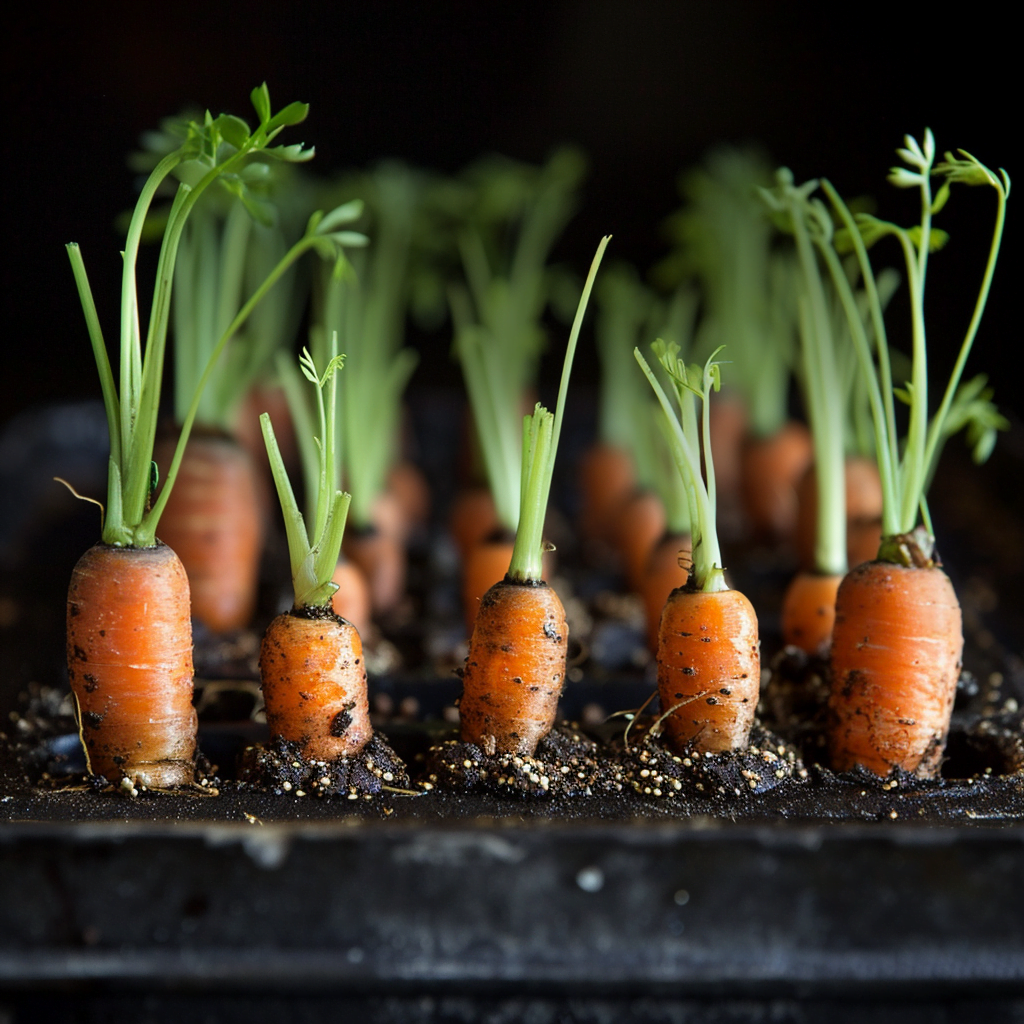
Growing Conditions
The conditions in which carrots are grown play a vital role in their taste and flavor. Here are some growing conditions that can impact the taste of carrots.
Lack of Nutrients
Carrots require a balanced supply of essential nutrients to develop a sweet taste. If the soil lacks nutrients such as potassium or phosphorus, it can result in less flavorful carrots or even bitterness. It is important to provide the necessary nutrients through regular fertilization and soil amendments to ensure optimal carrot taste.
Excessive Nitrogen
Although nitrogen is an essential nutrient for plant growth, an excess of it can negatively impact carrot taste. High levels of nitrogen can encourage rapid leafy growth at the expense of root development and flavor. Carrots grown in soil with excessive nitrogen may result in elongated, fibrous, and potentially bitter roots.
Inadequate Watering
Just as improper watering practices can affect carrot taste due to overwatering or under-watering, inadequate watering can also have a negative impact. Inconsistent moisture levels can cause carrots to become stressed, leading to bitterness. Regular and consistent watering is crucial to ensure optimal growth and taste.
Pest and Disease Infestation
Carrots are susceptible to various pests and diseases that can not only damage the roots but also affect their taste. Here are some common issues that may contribute to the bitterness in carrots.
Aphid Infestation
Aphids are tiny sap-sucking insects that can cause significant damage to carrot plants. When aphids feed on the leaves and stems of carrots, they can introduce toxins that result in a bitter taste. Proper pest management practices, such as regular monitoring and appropriate treatment, can help prevent aphid infestations and the resulting bitterness.
Powdery Mildew
Powdery mildew is a fungal disease that can affect carrot plants, particularly in humid and crowded growing conditions. When carrots are infected with powdery mildew, their taste can be impacted, resulting in a bitter flavor. Good airflow, proper plant spacing, and the removal of infected leaves can help prevent and control powdery mildew.
Bacterial Soft Rot
Bacterial soft rot is a common disease that affects carrots and can lead to a bitter taste. This disease is caused by bacterial pathogens that can enter the carrot roots through wounds or injuries. Once infected, the carrots may develop a foul smell and taste. Sanitation practices and proper handling of carrots can help minimize the risk of bacterial soft rot and maintain their taste.
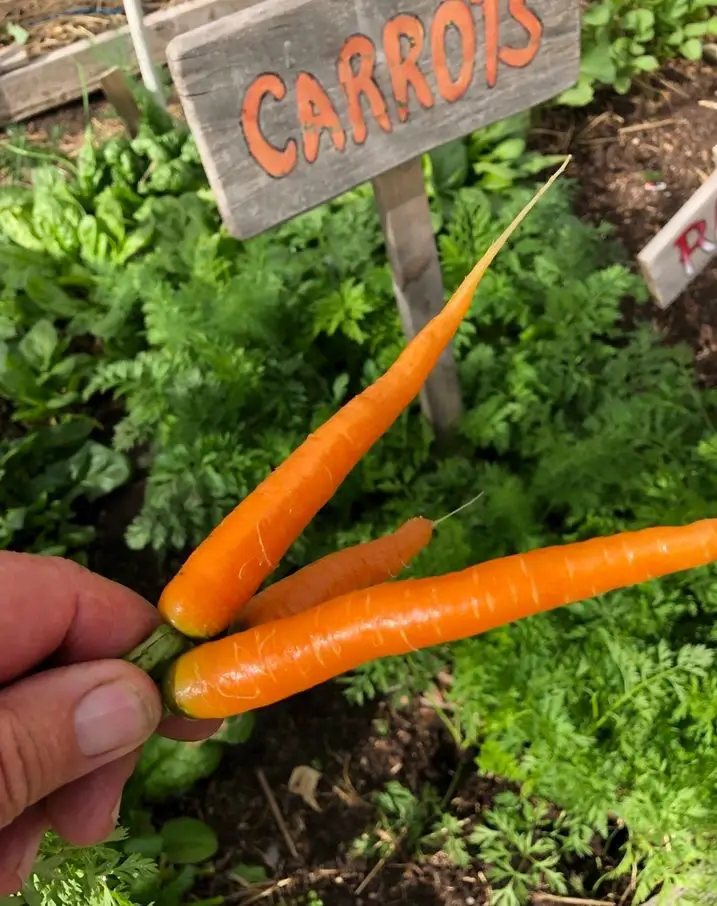
Improper Storage
Even if your carrots tasted sweet when harvested, improper storage conditions can cause them to develop a bitter taste over time. Here are some storage factors that can impact carrot flavor.
Exposure to Light
Exposing carrots to light can result in the production of chlorophyll, which can cause bitterness. To prevent this, store your carrots in a dark and cool place, such as a cellar or refrigerator. Additionally, avoid storing carrots near ethylene-producing fruits, as this can also affect their taste.
Exposure to Ethylene Gas
Ethylene gas is a natural plant hormone that speeds up the ripening process. While it can be beneficial for some fruits, exposure to ethylene gas can affect the taste of carrots, making them bitter. Keep your carrots away from ethylene-producing fruits, such as apples or bananas, to maintain their optimal flavor.
High Temperatures
Storing carrots at high temperatures can lead to the breakdown of sugars, resulting in bitterness. It is important to store carrots in a cool environment, ideally around 32 to 40 degrees Fahrenheit, to preserve their sweetness. Make sure to avoid storing them near heat sources or in areas prone to temperature fluctuations.
Culinary Preparation Methods
Sometimes, the bitter taste in carrots can be attributed to the way they are prepared and cooked. Here are some culinary factors that may impact carrot flavor.
Overcooking
Overcooking carrots can cause them to become mushy and result in a bitter taste. It is important to cook carrots until they are tender but still firm to maintain their natural sweetness. Avoid boiling or steaming them for an extended period, as this can lead to bitterness.
Undercooking
On the other hand, undercooking carrots may not allow their natural sugars to fully develop, resulting in a less sweet or potentially bitter taste. Ensure that your carrots are cooked thoroughly while still retaining their crispness to avoid any bitterness.
Incorrect Seasoning
Adding excessive or improper seasoning to cooked carrots can also affect their taste. Strong or conflicting flavors, such as excessive salt or bitter herbs, can overpower the natural sweetness of carrots, leading to a less pleasant taste. It is important to use seasoning judiciously and choose complementary flavors to enhance the natural sweetness of carrots.
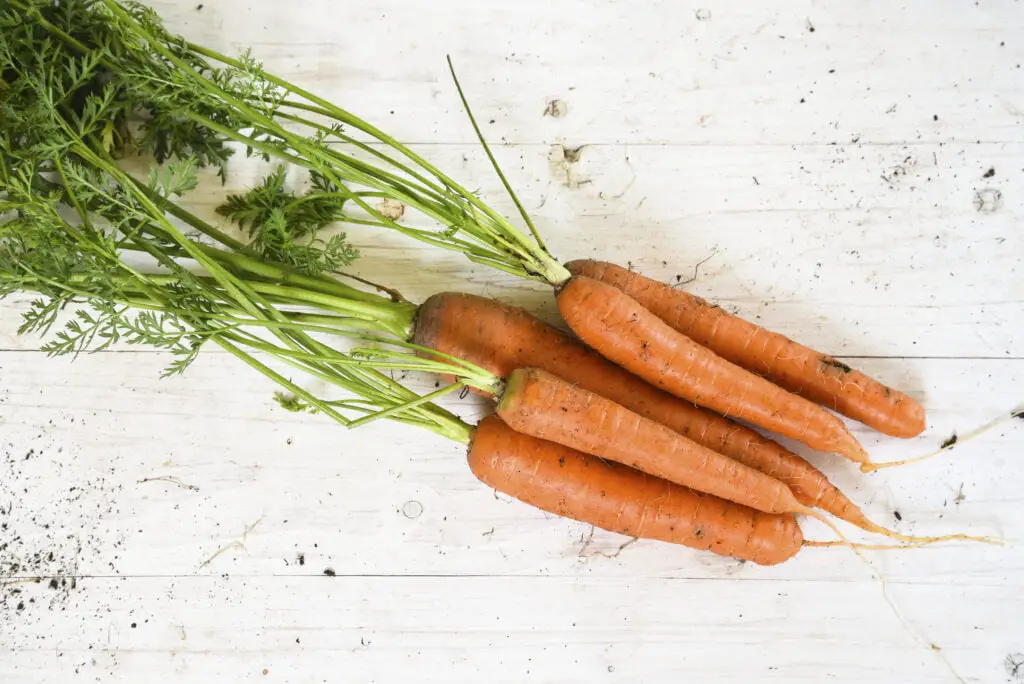
Personal Sensitivity
Sometimes, the bitter taste in carrots may not have anything to do with external factors but rather your personal sensitivity. Here are some factors related to personal sensitivity that may impact carrot taste.
Genetic Sensitivity
Everyone’s taste buds are unique, and some individuals may be more genetically sensitive to bitterness than others. This means that even carrots that are considered sweet by most may still taste bitter to certain individuals. Genetic sensitivity to bitterness can vary from person to person, and it is not something that can be easily changed.
Medications and Medical Conditions
Certain medications or medical conditions can affect your taste perception and make carrots taste bitter. For example, certain antibiotics or chemotherapy drugs can alter taste buds, leading to a bitter taste sensation. If you are on medications or have underlying medical conditions that impact taste, it is essential to discuss any changes in flavor with your healthcare provider.
Cross-Contamination
Cross-contamination can occur when carrots come into contact with other foods or surfaces that may transfer flavors. Here are a couple of cross-contamination scenarios that can result in a bitter taste in carrots.
Shared Cutting Boards and Utensils
If you use the same cutting board or utensils for cutting or preparing bitter-tasting vegetables or herbs, the flavors can transfer to your carrots. Bitter-tasting vegetables like bitter melon or bitter herbs like dandelion greens can leave a residual bitter taste on shared cutting boards or utensils. It is important to use separate cutting boards and utensils for different types of foods to prevent cross-contamination.
Contact with Certain Foods
Carrots can also absorb flavors from neighboring foods in storage or cooking. For example, if you store carrots in close proximity to strong onions or garlic, their flavors can transfer and result in a bitter taste. Similarly, if carrots are cooked together with bitter-tasting vegetables, the flavors can mingle and impact their taste. Ensuring proper separation and storage of carrots from other foods can preserve their intended flavor.
Ripening Process
The ripening process of carrots can influence their taste. Here are some considerations regarding carrot ripening.
Ethylene Gas Production
Carrots are non-climacteric, which means they do not produce ethylene gas during ripening like some fruits. However, they can still be sensitive to ethylene gas exposure, as mentioned earlier. It is vital to keep ethylene-producing fruits away from carrots to prevent any undesirable changes in flavor.
Carrot Maturity
Harvesting carrots at the right stage of maturity is crucial for optimal taste. Carrots that are harvested too early may not have developed sufficient sugars, resulting in a less sweet or potentially bitter taste. Conversely, if carrots are left in the ground for too long, they can become overmature and develop a bitter taste. It is important to monitor the maturity of carrots to ensure they are harvested at the peak of sweetness.
In conclusion, several factors can contribute to the bitter taste in carrots, ranging from environmental conditions during cultivation to personal sensitivity and culinary practices. By understanding these causes, you can take proactive measures to prevent bitterness and ensure that your carrots always provide a delightful and sweet taste. Remember to pay attention to the growing conditions, storage practices, and cooking methods to enjoy the full potential of this versatile and nutritious vegetable.
